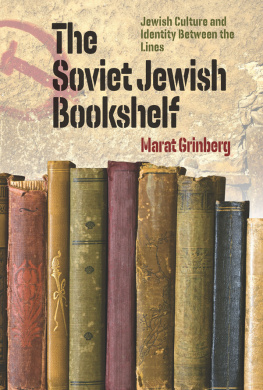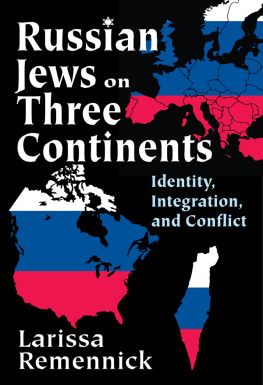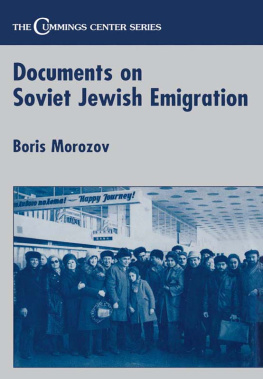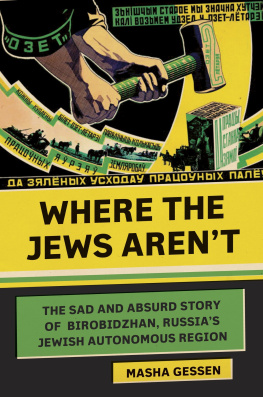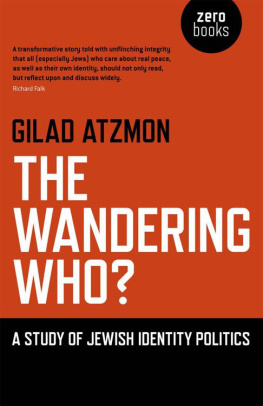THE TAUBER INSTITUTE SERIES FOR THE STUDY OF EUROPEAN JEWRY
Jehuda Reinharz,
General Editor
ChaeRan Y. Freeze,
Associate Editor
Sylvia Fuks Fried,
Associate Editor
Eugene R. Sheppard,
Associate Editor
The Tauber Institute Series is dedicated to publishing compelling and innovative approaches to the study of modern European Jewish history, thought, culture, and society. The series features scholarly works related to the Enlightenment, modern Judaism and the struggle for emancipation, the rise of nationalism and the spread of antisemitism, the Holocaust and its aftermath, as well as the contemporary Jewish experience. The series is published under the auspices of the Tauber Institute for the Study of European Jewryestablished by a gift to Brandeis University from Dr. Laszlo N. Tauberand is supported, in part, by the Tauber Foundation and the Valya and Robert Shapiro Endowment.
For the complete list of books that are available in this series, please see https://brandeisuniversitypress.com/series/tauber
Marat Grinberg
The Soviet Jewish Bookshelf: Jewish Culture and Identity Between the Lines
Arthur Green
Defender of the Faithful: The Life and Thought of Rabbi Levi Yitshak of Berdychiv
Gilad Sharvit
Dynamic Repetition: History and Messianism in Modern Jewish Thought
Yosef Hayim Yerushalmi in Conversation with Sylvie Anne Goldberg
Transmitting Jewish History
Charles Dellheim
Belonging and Betrayal: How Jews Made the Art World Modern
Cedric Cohen-Skalli
Don Isaac Abravanel: An Intellectual Biography
ChaeRan Y. Freeze
A Jewish Woman of Distinction: The Life and Diaries of Zinaida Poliakova
Chava Turniansky
Glikl: Memoirs 16911719
Dan Rabinowitz
The Lost Library: The Legacy of Vilnas Strashun Library in the Aftermath of the Holocaust
Jehuda Reinharz and Yaacov Shavit
The Road to September 1939: Polish Jews, Zionists, and the Yishuv on the Eve of World War II
Adi Gordon
Toward Nationalisms End: An Intellectual Biography of Hans Kohn
Noam Zadoff
Gershom Scholem: From Berlin to Jerusalem and Back
A Sarnat Library Book
Brandeis University Press
2023 Marat Grinberg
All rights reserved
Manufactured in the United States of America
Designed by Richard Hendel
Typeset in Sabon by Passumpsic Publishing
For permission to reproduce any of the material in this book, contact Brandeis University Press, 415 South Street, Waltham MA 02453, or visit brandeisuniversitypress.com
LIBRARY OF CONGRESS CATALOGING-IN-PUBLICATION DATA
NAMES: Grinberg, Marat, 1977 author.
TITLE: The Soviet Jewish bookshelf: Jewish culture and identity between the lines / Marat Grinberg.
DESCRIPTION: Waltham: Brandeis University Press, 2023. | Series: The Tauber institute series for the study of European Jewry | Includes bibliographical references and index. | Summary: In an environment where a public Jewish presence was routinely delegitimized, reading uniquely provided for many Soviet Jews an entry to communal memory and identity. This project decodes the complex reading strategies and the specifically Jewish uses to which the books on the Soviet Jewish bookshelf were putProvided by publisher.
IDENTIFIERS: LCCN 2022036040 | ISBN 9781684581313 (paperback) | ISBN 9781684581320 (ebook)
SUBJECTS: LCSH: JewsBooks and readingSoviet union. | JewsSoviet UnionIdentity.
CLASSIFICATION: LCC Z1003.5.S62 G75 2023 | DDC 028.90947dc23/eng/20220901
LC record available at https://lccn.loc.gov/2022036040
This publication was made possible through the generous support of Brandeis Universitys Bernard G. and Rhoda G. Sarnat Center for the Study of Anti-Jewishness, which aims to promote a deeper understanding of anti-Jewish prejudice, as well as Jewish and non-Jewish responses to this phenomenon, from both a historical and a contemporary perspective.
5 4 3 2 1
To Matthew and Mayamy two miracles
ACKNOWLEDGMENTS
An idea for writing a book about what and how Soviet Jews read dates back to my undergraduate years at Columbia University and the Jewish Theological Seminary of America, where I was startled to discover that the name of Lion Feuchtwanger, the German Jewish writer lionized by Soviet Jews, meant nothing to my American Jewish peers and very little, if anything at all, even to professors of German. This experience provided a major impetus for what would become this books project: uncovering and explaining the contents of the Soviet Jewish bookshelf to reveal that Soviet Jewishness was much more than an empty sign or only the sign of victimhood and persecution.
As I was sending my final manuscript to the publisher in the fall of 2021, I thought of it as my Covid book. Much of it was written during the pandemic crisis in the midst of school closures and Zoom teaching. Working on the book provided a respite from the uncertainty and anxiety of those months. As I am writing this now, the war in Ukraine has been raging for more than three months. I cannot know what the state of affairs will be when the book reaches the reader, but it is clear that the war has shaped and will continue to shape how we, as both scholars and individuals, view the past, the present, and the future. In my case, the war has hit too close to home. My long and deep ancestral roots are in Ukraine, in the Podilia region, where, surrounded by both Russian and Ukrainian, I spent the first sixteen years of my life prior to coming to the United States in 1993. I studied Ukrainian language and literature all through the years of secondary school. Livingin Ukraine undoubtedly contributed to my familys sense of being Soviet Jews. The intertwining of Russian, Ukrainian, and Jewish elements is a frequent topic in this book.
Despite the ongoing tragedy and the devaluing and reevaluating of culture it has caused, I dare hope that this book about preservation of ones identity in the face of the overwhelming desire to squash and efface it has not lost its relevance, and perhaps even gained some. A book that examines surviving under censorship and offering resistance to the authoritarian and totalitarian rule contains lessons for today. The Soviet modus operandi of reading between the lines might become the norm in Russia again. So many are turning to books for answers and parallels to what is happening and it is the works from the Soviet Jewish bookshelffrom Feuchtwanger to the science fiction of the Strugatsky brothersthat often top the peoples lists. There are photos of scorched books saved from the bombings in Ukraine and books again taken into emigration; there is use and misuse of memories of the Holocaust and World War IIall of this finds loud echoes in my books contents.
I am grateful to everyone with whom I have discussed The Soviet Jewish Bookshelf over the years, especially Gennady Estraikh, Maxim Shrayer, Anna Shternshis, Radislav Lapushin (who read the manuscript in its entirety and offered valuable comments), Dorian Stuber, Nila Friedberg, Zhenya Bershtein, Alice Nakhimovsky, Polina Barskova, Marina Aptekman, Arkadi Zeltser, Mikhail Krutikov, Michael Weingrad, Naya Lekht, the late David Shneer, Evgeny Wiener, and my students, Zachary Youcha and Misha Lerner. I am deeply indebted to Olga Trifonova, Marianna Shakhnovich, Zsuzsa Hetenyi, and Mikhail Tsypkin for providing invaluable information and photographs, and to folks at the Jewish Museum in Moscow, especially Lyubov Lavrova, and at the Russian State Archive of Literature and Art, where I conducted research in the summer of 2019. Im also, of course, grateful to everyone at Brandeis University Press and the Tauber Institute, especially Sylvia Fried, ChaeRan Freeze, and Sue Ramin, for all their assistance and insight. Im thankful to the manuscripts two anonymous reviewers for their assessment and input as well.

